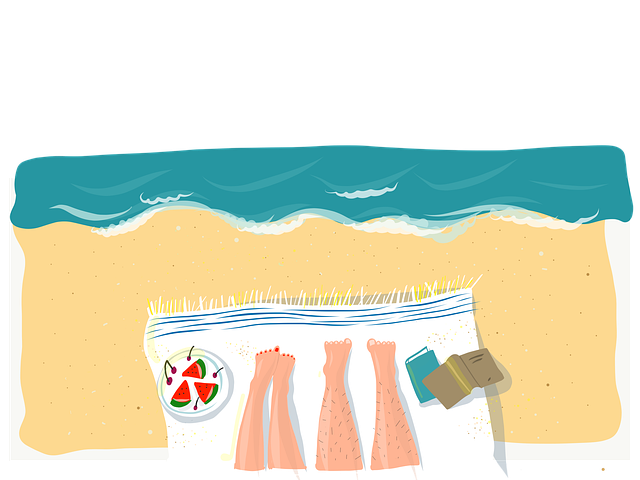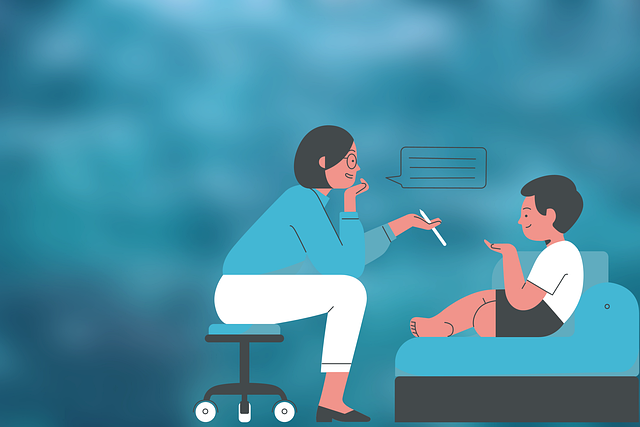
Category: Gilbert Az Couples Therapy
Gilbert AZ Couples Therapy: A Comprehensive Analysis
Introduction
Welcome to an in-depth exploration of Gilbert AZ Couples Therapy, a specialized form of therapeutic intervention designed to strengthen relationships and resolve conflicts between partners. In today’s fast-paced world, where stress and communication barriers often strain personal connections, this type of therapy has emerged as a beacon of hope for many couples seeking to improve their bonds. This article aims to guide readers through the intricacies of Gilbert AZ Couples Therapy, its global reach, economic implications, technological integrations, regulatory frameworks, and future prospects. By the end, you’ll gain a comprehensive understanding of why this therapeutic approach is making waves worldwide.
Understanding Gilbert AZ Couples Therapy
Definition and Core Components
Gilbert AZ Couples Therapy, often abbreviated as GACT, is a holistic and collaborative approach to addressing relationship challenges. It involves a team of trained therapists who utilize evidence-based techniques to help couples communicate more effectively, resolve conflicts, and rebuild trust. The core components include:
- Assessment: Understanding the couple’s history, current issues, and individual needs through detailed interviews and behavior observations.
- Goal Setting: Collaboratively setting realistic goals with the couple to guide the therapeutic process.
- Intervention Strategies: Employing techniques such as communication training, conflict resolution skills, and behavioral activation to address specific challenges.
- Support and Education: Providing resources and guidance on relationship dynamics, stress management, and emotional regulation.
- Follow-up: Regular check-ins to monitor progress, provide ongoing support, and ensure sustained positive changes.
Historical Context
The roots of GACT can be traced back to the mid-20th century when psychologists and therapists began recognizing the unique challenges faced by couples navigating complex personal and societal changes. Over time, various therapeutic models evolved, contributing to the comprehensive approach seen today. Notable figures like John Bowlby’s attachment theory and Carl Rogers’ person-centered therapy laid foundational principles that influence modern GACT practices.
Significance and Broader Landscape
Gilbert AZ Couples Therapy plays a pivotal role in promoting healthy relationships and well-being within communities. It addresses a growing need for effective relationship counseling, particularly as societal structures evolve and interpersonal connections become more complex. By providing specialized support, GACT helps couples:
- Enhance communication and connection.
- Resolve conflicts and prevent escalation.
- Manage stress and emotional challenges together.
- Strengthen their bond and rebuild trust.
- Improve overall relationship satisfaction.
Global Impact and Trends
International Influence
Gilbert AZ Couples Therapy has spread beyond its origins in Arizona, gaining global recognition and adoption. Its success is attributed to its adaptability across diverse cultural contexts and its evidence-based approach. Today, it is implemented in numerous countries, including the UK, Australia, Canada, and various European nations.
Key Trends Shaping GACT
Several trends are shaping the future of Gilbert AZ Couples Therapy worldwide:
- Cultural Competence: Increasing emphasis on culturally sensitive practices to accommodate diverse populations.
- Teledtherapy: Integration of technology for remote sessions, expanding access to therapy globally.
- Preventive Measures: Focusing on early intervention and prevention programs to address relationship issues before they escalate.
- Integrated Care: Collaborating with primary care providers and other health services to offer comprehensive support.
Regional Variations
Different regions have unique approaches and adaptations of GACT:
| Region | Adaptation | Notable Features |
|---|---|---|
| North America | Emphasis on evidence-based practices and insurance coverage for therapy. | Strong clinical research base and integration with mental health systems. |
| Europe | Focus on cultural sensitivity and diversity, particularly in multilingual countries. | Enhanced training in cross-cultural communication and adaptive therapeutic techniques. |
| Asia | Incorporation of traditional healing practices alongside modern therapy methods. | Sensitivity to cultural taboos and preferences for collective over individualistic approaches. |
| Oceania | Adoption of teledtherapy due to vast distances and dispersed populations. | Strong focus on building digital infrastructure for accessible counseling services. |
Economic Considerations
Market Dynamics
The global couples therapy market is experiencing growth, driven by increasing awareness of mental health issues and the rising prevalence of relationship challenges. GACT, with its evidence-based approach, holds a significant share of this market. Key players include specialized therapy centers, non-profit organizations, and government initiatives.
Investment Patterns
Private investments in GACT focus on research, training, and technology enhancements. Non-profit organizations often secure funding from grants, corporate partnerships, and public donations. Government bodies allocate resources for public health programs, including couples therapy services, as part of their mental health care strategies.
Economic Impact
The economic impact of Gilbert AZ Couples Therapy is multifaceted:
- Personal Well-being: Improved relationship satisfaction and reduced conflict can lead to better mental health outcomes, decreasing the burden on healthcare systems.
- Productivity: Healthy relationships contribute to higher job satisfaction and productivity among couples, potentially boosting overall economic productivity.
- Reduced Healthcare Costs: Preventing relationship breakdown and associated mental health issues can result in significant cost savings for public and private healthcare providers.
Technological Advancements
Integration of Technology
Technology plays a pivotal role in modern GACT, enhancing accessibility and personalization:
- Teledtherapy Platforms: Secure video conferencing tools enable remote sessions, reaching couples in remote areas or with limited mobility.
- Mobile Apps: Customized apps offer homework assignments, communication exercises, and resources between therapy sessions.
- Data Analytics: Advanced analytics help therapists track progress, identify patterns, and tailor interventions effectively.
- Virtual Reality (VR): VR technology is explored for exposure therapy and immersive experiences to address specific issues like fear or anxiety.
Impact and Future Potential
Technological advancements in GACT have led to:
- Increased accessibility to therapy for underserved populations.
- Personalized treatment plans based on individual needs and progress.
- Improved engagement and adherence through interactive digital tools.
Future potential includes:
- Artificial Intelligence (AI): AI-driven chatbots and virtual therapists could provide basic counseling and support between sessions.
- Advanced Data Analysis: Predictive analytics might help identify couples at risk of relationship breakdown, enabling proactive interventions.
- Immersive Therapies: VR and augmented reality (AR) could be used for role-playing scenarios and exposure therapy.
Policy and Regulation
Key Policies and Regulations
The provision of Gilbert AZ Couples Therapy is guided by various policies and regulations worldwide:
- Licensing and Certification: Professional therapists must obtain licenses and certifications from regulatory bodies, ensuring competency and ethical practice.
- Privacy Laws: Data protection laws, such as HIPAA in the US, safeguard client confidentiality during therapy sessions.
- Insurance Coverage: Many countries have insurance policies covering mental health services, including couples therapy.
- Government Funding: Public funding supports access to therapy through government-run programs and clinics.
Influence on Development
Policies and regulations play a crucial role in:
- Standardization: Setting standards for training, practice, and ethical conduct ensures consistent quality of care.
- Accessibility: Regulations promoting insurance coverage and public funding increase accessibility to couples therapy.
- Ethical Practice: Legal frameworks protect client rights and ensure therapists maintain confidentiality and professional boundaries.
- Research and Training: Policy incentives encourage research and training initiatives, fostering continuous improvement in GACT practices.
Challenges and Criticisms
Main Challenges
Despite its successes, Gilbert AZ Couples Therapy faces several challenges:
- Stigma: Stigma surrounding mental health issues and relationship problems can deter couples from seeking help.
- Accessibility: Limited access to therapy in rural or low-income areas hinders many couples from receiving necessary support.
- Finances: Out-of-pocket costs for therapy can be a significant barrier, especially without insurance coverage.
- Therapist Shortage: A global shortage of trained mental health professionals poses challenges in meeting growing demand.
Criticisms and Actionable Solutions
Criticisms of GACT include:
- Cultural Inappropriateness: Some therapists may lack cultural sensitivity, leading to inappropriate interventions for diverse populations.
- Solution: Enhance cultural competence training for therapists and adapt practices to respect diverse cultural norms and values.
- Lack of Individualized Attention: Group therapy sessions might not cater to couples with unique or complex issues.
- Solution: Offer specialized one-on-one sessions alongside group therapy options, ensuring tailored support.
- Sustainability of Results: Some critics argue that the benefits of therapy may be short-lived without ongoing practice.
- Solution: Emphasize follow-up sessions and provide resources for continued growth and maintenance of therapeutic gains.
Case Studies
Case Study 1: Urban Couple Overcoming Communication Barriers
A young professional couple in a bustling city struggled with effective communication due to their demanding careers. Through GACT, they learned active listening skills, improved conflict resolution, and developed a stronger emotional connection. The therapy sessions provided a safe space for open dialogue, leading to better understanding and increased intimacy. This case illustrates how GACT can help couples navigate the challenges of modern urban life.
Case Study 2: Rural Community’s Access to Therapy
A small rural community lacked access to mental health services, impacting relationships among residents. Local community leaders partnered with a traveling therapy team to bring GACT workshops and sessions to the area. The initiative increased awareness, reduced stigma, and provided much-needed support for couples facing relationship issues. This case highlights the importance of adapting GACT to meet diverse regional needs.
Case Study 3: Long-term Relationship Revival
A couple who had been together for decades sought GACT to revive their fading connection. Over several months, they re-established trust, rediscovered shared interests, and learned new ways to support each other. The therapy sessions provided a renewed sense of purpose in their relationship, demonstrating the potential for GACT to foster longevity and transformation.
Future Prospects
Potential Growth Areas
The future of Gilbert AZ Couples Therapy holds exciting possibilities:
- Digital Transformation: Continued integration of technology will expand accessibility and enable more personalized therapy experiences.
- Cultural Competence: Increased emphasis on culturally responsive practices will ensure GACT remains relevant and effective across diverse populations.
- Preventive Measures: Growing focus on early intervention and prevention programs could significantly reduce the need for intensive therapy later in relationships.
- Research Advancements: Emerging research methodologies, such as neuroimaging and gene expression analysis, may provide deeper insights into relationship dynamics.
Emerging Trends
Upcoming trends include:
- Personalized Therapy: Using data analytics to tailor interventions based on individual couple profiles and progress.
- Integrated Care Models: Collaboration between therapists, primary care providers, and other specialists to offer comprehensive, coordinated care.
- Virtual Reality Therapies: Expanding use of VR for immersive exposure therapy and role-playing scenarios.
- Community-Based Initiatives: Encouraging local communities to take an active role in promoting healthy relationships and accessing GACT resources.
Strategic Considerations
To capitalize on future prospects, key considerations include:
- Continuous Training: Ensuring therapists stay updated with the latest research, technology, and cultural sensitivity training.
- Accessibility Initiatives: Expanding reach through digital platforms, community partnerships, and targeted funding for underserved populations.
- Research Collaboration: Encouraging interdisciplinary research to explore new therapeutic approaches and outcomes.
- Policy Advocacy: Working with policymakers to promote supportive regulations, insurance coverage, and public funding for couples therapy.
Conclusion
Gilbert AZ Couples Therapy has emerged as a powerful tool in the global effort to strengthen relationships and improve well-being. Its evidence-based approach, adaptability across cultures, and technological integrations have contributed to its widespread adoption and success. As society continues to evolve, GACT will play an increasingly vital role in addressing relationship challenges. By navigating challenges, embracing emerging trends, and prioritizing accessibility, this therapeutic model can foster healthier, more resilient connections worldwide.
FAQ Section
Q: What is the difference between Gilbert AZ Couples Therapy and traditional counseling?
A: While both aim to improve relationships, GACT is specialized for couples, focusing on collaborative problem-solving and communication skills. Traditional counseling may address a broader range of individual and relationship issues but often does not have the same structured, couple-centric approach as GACT.
Q: How effective is Gilbert AZ Couples Therapy?
A: Research consistently demonstrates the effectiveness of GACT in improving relationship satisfaction, reducing conflict, and enhancing communication. Success rates vary based on factors like commitment, motivation, and individual needs, but studies show significant positive outcomes for many couples.
Q: Can GACT help same-sex couples or polyamorous relationships?
A: Absolutely! GACT is designed to be inclusive and adaptable to various relationship structures. Therapists trained in GACT are equipped to address the unique challenges faced by all couples, regardless of gender or relationship type.
Q: Is insurance coverage available for couples therapy?
A: Yes, many insurance plans cover mental health services, including couples therapy. However, policies vary, so it’s essential to check with your provider and understand your specific benefits. Some countries have public funding initiatives to support access to therapy for all.
Q: Can technology truly replace face-to-face therapy sessions?
A: While teledtherapy offers significant advantages in accessibility, it is not a replacement for all face-to-face sessions. In-person interactions provide unique benefits for building rapport and trust. However, combining both approaches can create a comprehensive and accessible care model.











